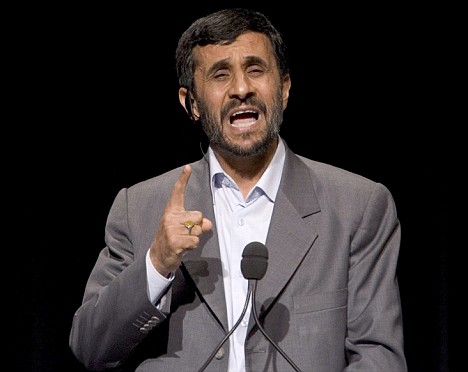A key theme in Cultural Maturity’s “growing up” is a newfound ability to step beyond ideological easy answers. If we think in terms of dangerous consequences, the most dramatic example concerns our past propensity to divide humanity into “chosen people” and “evil others.” Combine “chosen people/evil other” thinking with today’s readily available weapons of mass destruction and our future does not look bright. But the example is as significant, ultimately, because it provides some of the best evidence that Cultural Maturity’s changes are not just possible, but beginning to be realized.
When Richard Nixon was President of the US, he uttered these chilling words: “It may seem melodramatic to say that the United States and Russia represent Good and Evil, Light and Darkness, God and the Devil. But if we think of it that way, it helps clarify our perspective in the world struggle.” How fortunate that we did not see the outcomes we very well could have.
Such sentiments are not particular to him. Indeed a related kind of projection of our less savory attributes has been central to a felt sense of social identity since our species beginnings. Always before in human history our collective sense of security and purpose has required that we create polar worlds of “us and them.” Such belief has served to protect us life’s easily overwhelming uncertainties and complexities. But our future safety and general well-being hinges on our ability to get beyond such simplistic allegiances and to think and relate in more mature and nuanced ways.
When I point out this past propensity to people, the most common response is to doubt that we could ever get beyond it. They assume this response is hardwired, part of our genetic heritage. But if it is, we are doomed. Fortunately, be all evidence it is not. I can think of no more significant Cultural Maturity-related accomplishment than the beginning steps we now see toward moving beyond this before ever-present need.
The fall of the Berlin Wall provides the most iconic moment. Few anticipated it, certainly the suddenness of its collapse. And while leaders have taken credit for it, political initiatives in fact had little to do with what we saw. The cause was at once simpler and more profound. In effect, we got bored with what the wall represented. The absoluteness of belief and knee-jerk polar animosities needed to support it stopped being sufficiently compelling.
In contemplating Cultural Maturity’s changes, it is importance that we recognize how far we have come. Certainly we need to be careful of misplaced self-congratulation. But I grow wary whenever advocates of cultural change imply that everything has yet to change, or even when people express frustration that movement is happening slowly—though I can share their frustration. Arguments that dismiss the changes we have already realized not only tend to misconceive the past, they also most often misrepresent where we need to go.
As important as the fact of the Berlin Wall’s fall is what has happened—or not happened—since. With the end of the Cold War, “evil empire” animosities between the United States and the former Soviet Union transformed with unprecedented quickness to a relationship of mutual, if often begrudging, respect. Think of how different this is than what has transpired in times past, for example with the centuries over which old animosities remained between the Serbians and Croats in the former Yugoslavia (beneath apparent cooperation).
And we have not seen major polarization since (though we must keep our fingers crossed). Certainly we have had ample opportunity to engage in it. The 9/11 World Trade Center attacks provided every reason to make terrorism the new communism and, in the process, undermine any possibility of effectively addressing it. Or worse, we could have made the Islamic East the new “Evil Empire” and turned predicted new uncertainties into a clash of civilizations. But while leaders have sometimes played the demon card, to a remarkable degree average citizens have not fallen for the bait. Most people today see terrorism as complex and dreadful, but not a product of people who are themselves evil. Seen from an historical vantage, this fact is remarkable. Seen in relation to the question of whether we are up to what Cultural Maturity’s changes more broadly will require, it provides important encouragement.

